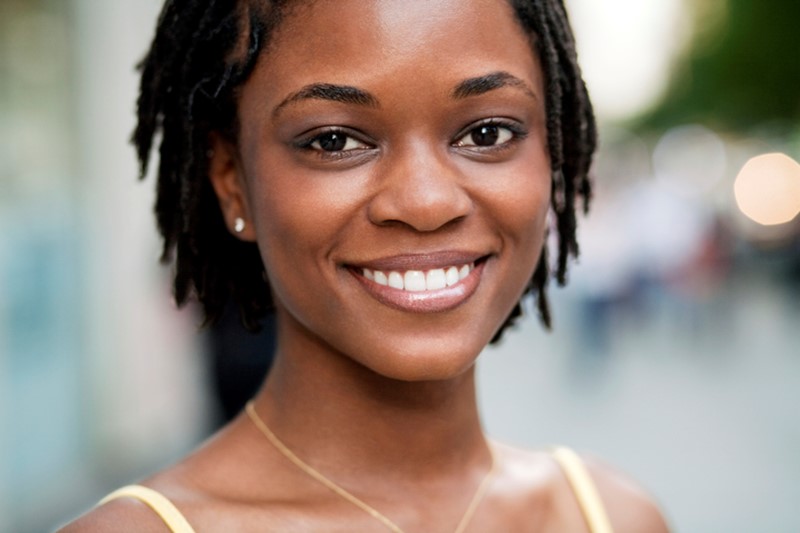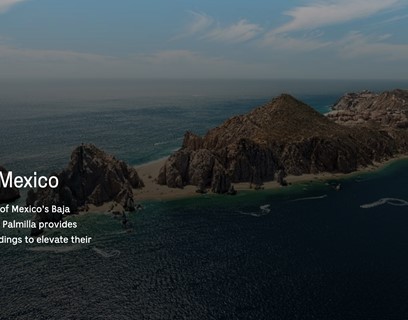
It is rare to see a documentary that sticks with you for longer than five minutes. Rarer still is to find a director who makes a stand for something. Toyin Agbetu's feature length documentary 'Beauty Is' deals with a wide spectrum of issues linked to beauty within the the Black community. From shadeism and skin lightening to hair loss to relationships, Toyin uncovers what beauty means to Black people. This is unusual and sets it in the same category as 'Good Hair' and 'Dark Girls' because beauty stories in the media are usually told from a White female perspective.
'Beauty Is' eloquently tells the stories of the everyday lives of ordinary Black women and men. Combining individual and group interviews with role plays, this documentary makes you question the foundations of what you consider to be beautiful. One of the personal interviews is with a woman with vitiligo who was offered medication to depigment her skin when she was a child. I could hear small grasps in the audience when she said this. Surely, there was another way? To strip a white person of their melanin would have a considerably diminished effect on their self esteem than it would to strip a black person of their melanin. This shows a lack of understanding by the medical profession of how medication like this can effect a person's identity. Not only is the effect visually dramatic as you go from black to white but, it leaves questioning who you are and where you fit in.
Of course Black identity is made up of more than skin colour. However, whether we like it or not shadeism exists. White privilege exists. The fairer skinned you are the more that your perceived as being closer to white and by dint of this you are more beautiful. Beauty, especially in a woman, is what we are judged on and it's how many people ascribe worth to a person.
The most poignant story for me is the interview with a woman who had completely lost her hair and eyebrows due to alopecia totalis. Six years ago I suffered from alopecia where I lost 40% of my hair due to scalp psoriasis bought on by stress. She wore a wig and wondered if her future children would grow up thinking that mummy only felt beautiful when she wore her wig. This stayed with me and I questioned whether I could feel beautiful without a head full of hair.
Toyin Agbetu brings to light the deep, dark and dirty secrets that lie within the Black community. Like the rampant use of skin lighteners or that 'nappy' hair is to be discouraged. Within the Black community we continue to perpetrate ideas and ideals that link back to slavery. Some of this is unconscious and some of it is not. When we lighten our skin on one side lies our conscious intent to look fairer. However, do we consider the risk to our bodies? Do we consider that we are damaging our liver and kidneys amongst other organs? Do we even know that this damage occurs?
History has dealt Black women and men a blow. This goes without question but, now is the time to begin healing the long festering wounds within our community. Only when we air our fears can we deal with the historical burdens that we have inherited because underneath all of these practices is the fear that we are not good enough. We attempt to feel better about ourselves and to fit in with society by altering our appearance. It is a society that says that we lack 'something' and we believe that 'something' is x, y or z and so we begin the journey to fairer skin, straighter hair or a thinner nose.
How do we evolve? It begins with a single person. A small group of people, a family perhaps. It has began with a single man. A man who calls himself a Community Educator. I call him a Community Warrior. It is because of people like Toyin Agbetu that we are forced to question our notions of beauty. It's not about vanity. It's about identity, self worth and humanity because when propaganda is created in times of war and slavery, it is used to dehumanise people. The 'other' is made to look more like an animal with less intellectual capacity and therefore, this is reason enough for the 'other' to be treated badly. It is the perceived difference between a Hutu and a Tutsi or the difference between Australians Aboriginals and White Australians. We carry that legacy with us today. It permeates how we are educated, how the medical community treats us and even how the beauty industry sees us.
It is because of this legacy that Toyin asks us if we have a choice in our beauty decisions. When you decide to wear a weave that looks nothing like your own hair texture is it because you want to try something different or is it the desire to fit? When we contour your noses with makeup are you happy with our nose or are we seeking a slimmer more European looking nose? Our beauty decisions are influenced by politics, socio-economic status and the global media. These messages are a soup that we have grown up in. In order to examine these ideals and beliefs we need to take a step back and consider why we believe the things that we do.
'Beauty Is' gives the Black community the chance to see people who look just like us so that we can recognise our own beauty and in turn our humanity. It educates though gentle humour and it will make you sigh in recognition. It is gripping, memorable and it encourages us to examine our own hidden truths. It's lasting message is that most of the current images of beauty within the Black community need to be stripped away. We need to create images that promote our well-being and growth. Ultimately, our image of beauty needs to uncover our humanity and enable us to tell our collective truth.
http://www.ligali.org/beautyis


